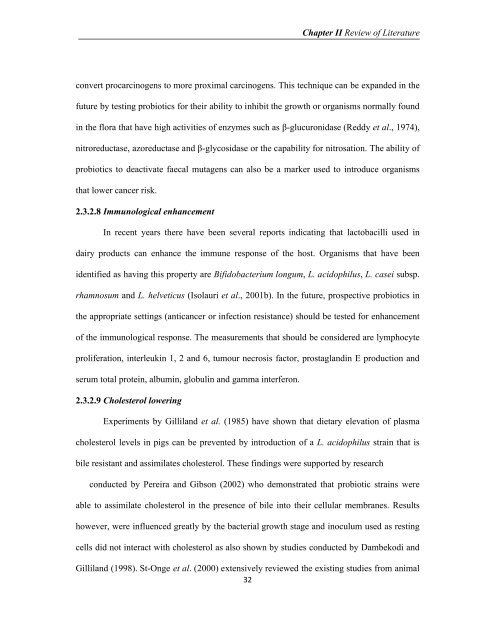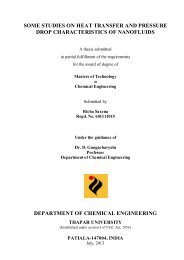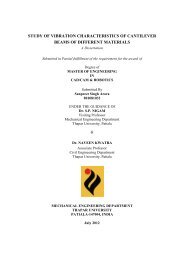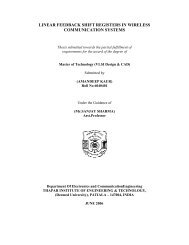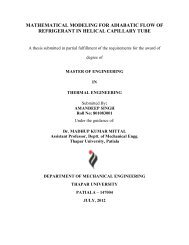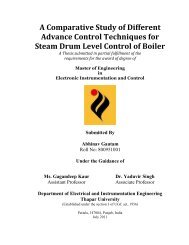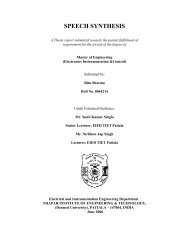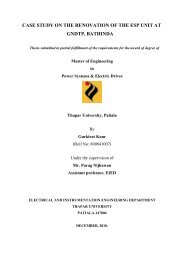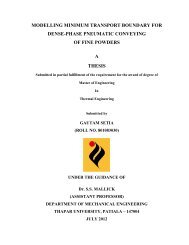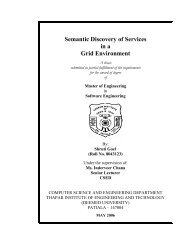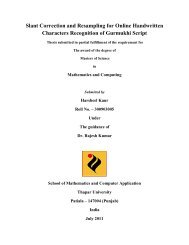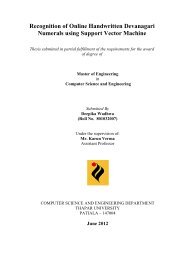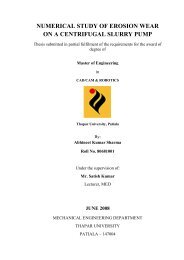from indigenous fermented foods and human gut ... - Thapar University
from indigenous fermented foods and human gut ... - Thapar University
from indigenous fermented foods and human gut ... - Thapar University
You also want an ePaper? Increase the reach of your titles
YUMPU automatically turns print PDFs into web optimized ePapers that Google loves.
Chapter II Review of Literature<br />
convert procarcinogens to more proximal carcinogens. This technique can be exp<strong>and</strong>ed in the<br />
future by testing probiotics for their ability to inhibit the growth or organisms normally found<br />
in the flora that have high activities of enzymes such as β-glucuronidase (Reddy et al., 1974),<br />
nitroreductase, azoreductase <strong>and</strong> β-glycosidase or the capability for nitrosation. The ability of<br />
probiotics to deactivate faecal mutagens can also be a marker used to introduce organisms<br />
that lower cancer risk.<br />
2.3.2.8 Immunological enhancement<br />
In recent years there have been several reports indicating that lactobacilli used in<br />
dairy products can enhance the immune response of the host. Organisms that have been<br />
identified as having this property are Bifidobacterium longum, L. acidophilus, L. casei subsp.<br />
rhamnosum <strong>and</strong> L. helveticus (Isolauri et al., 2001b). In the future, prospective probiotics in<br />
the appropriate settings (anticancer or infection resistance) should be tested for enhancement<br />
of the immunological response. The measurements that should be considered are lymphocyte<br />
proliferation, interleukin 1, 2 <strong>and</strong> 6, tumour necrosis factor, prostagl<strong>and</strong>in E production <strong>and</strong><br />
serum total protein, albumin, globulin <strong>and</strong> gamma interferon.<br />
2.3.2.9 Cholesterol lowering<br />
Experiments by Gillil<strong>and</strong> et al. (1985) have shown that dietary elevation of plasma<br />
cholesterol levels in pigs can be prevented by introduction of a L. acidophilus strain that is<br />
bile resistant <strong>and</strong> assimilates cholesterol. These findings were supported by research<br />
conducted by Pereira <strong>and</strong> Gibson (2002) who demonstrated that probiotic strains were<br />
able to assimilate cholesterol in the presence of bile into their cellular membranes. Results<br />
however, were influenced greatly by the bacterial growth stage <strong>and</strong> inoculum used as resting<br />
cells did not interact with cholesterol as also shown by studies conducted by Dambekodi <strong>and</strong><br />
Gillil<strong>and</strong> (1998). St-Onge et al. (2000) extensively reviewed the existing studies <strong>from</strong> animal<br />
32


